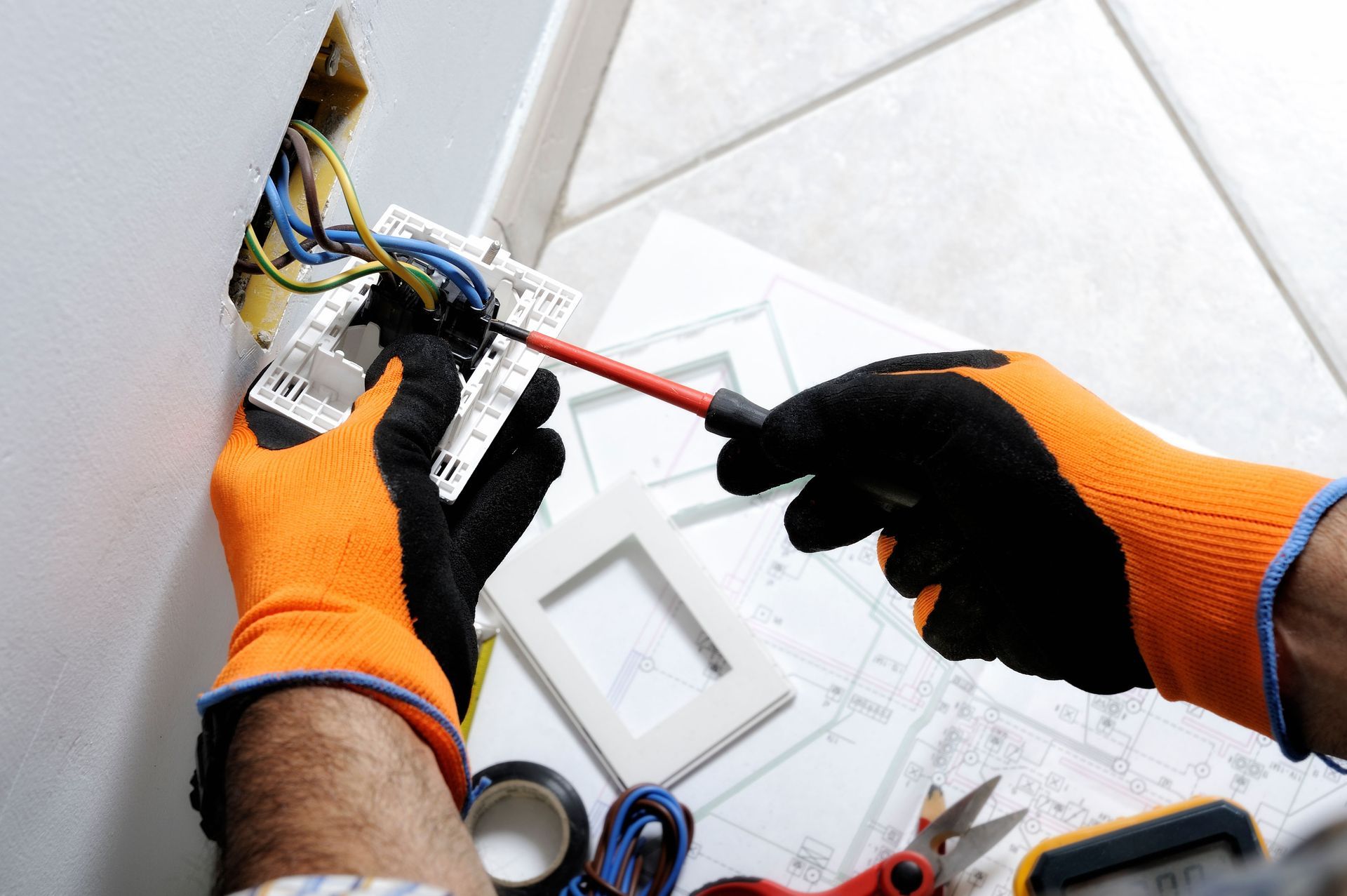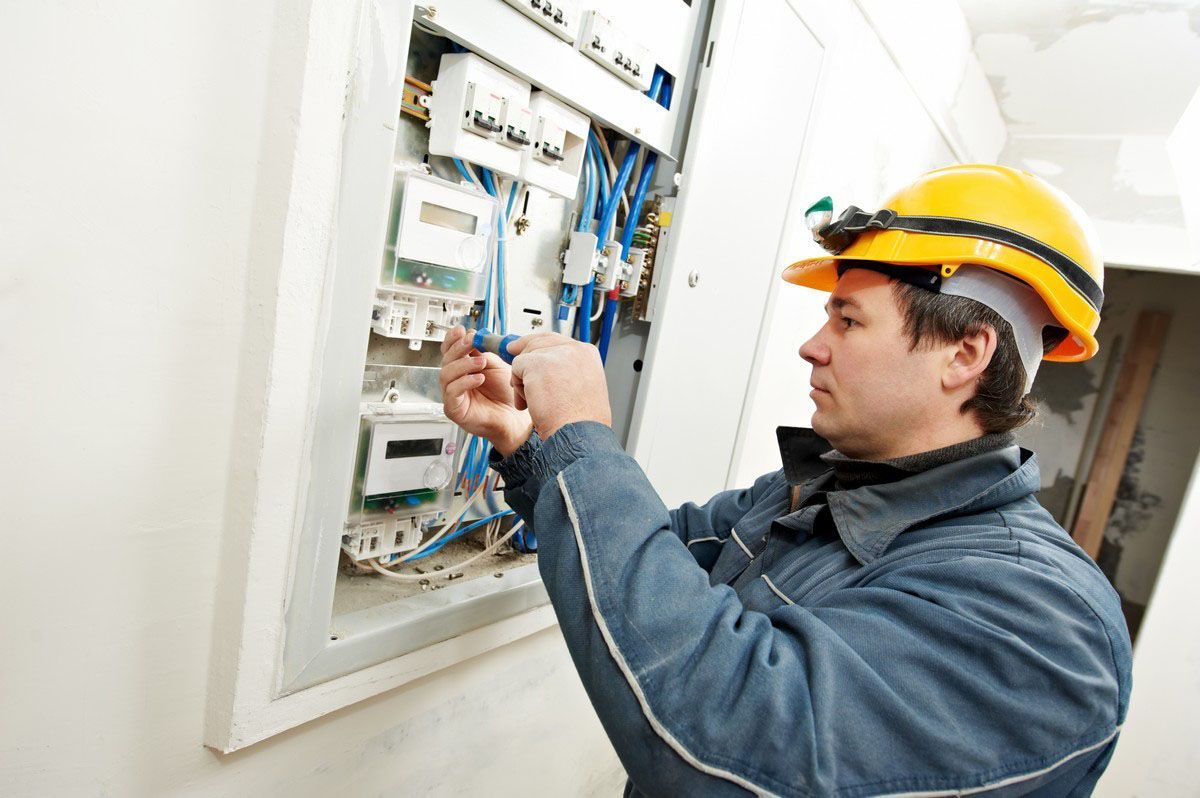October 1, 2025
Choosing the right commercial electrical contractor is crucial for ensuring the success and safety of your project. With significant differences in capabilities and levels of expertise among contractors, making an informed decision can save time, money, and avoid potential risks. Let's take a moment to look at a few important considerations and steps to take when selecting an ideal contractor for your commercial electrical needs.
Assessing the Scope of Your Project
Before you start searching for a commercial electrical contractor, it's essential to clearly define the scope of your project. This involves detailing the nature of the electrical work needed, whether the project is new construction, renovation, or a specific upgrade. Understanding the full extent of the work will guide you in choosing a contractor with the appropriate expertise. Additionally, this clarity helps in setting realistic expectations and ensuring accurate cost estimation. Thoroughly defining your project scope from the beginning will anchor all other decisions you make in the process.
Knowing the scope also assists in communicating with potential contractors about your project requirements. Articulate your vision and objectives to ensure everyone is on the same page. Miscommunication and misunderstandings about project scope can lead to delays and increased costs. It's often beneficial to work with an electrical consultant or designer at this stage to draft a comprehensive project plan. Such documentation assists in aligning the contractors' bids with your project goals.
Identifying Specialty Needs
After defining the general scope of your project, it's important to consider any specialty needs it might entail. Modern commercial projects often involve integrated systems, such as data infrastructure, security, or energy management systems. Each of these specialties requires specific expertise from your chosen commercial electrical contractor. Not every electrical contractor will possess the necessary skills in these specialized areas, so this knowledge is critical for successful project completion. Ensure you're aware of the full range of capabilities required before selecting a contractor.
Specialized projects often demand compliance with additional regulations and standards. These requirements can vary significantly based on the project's nature and location. Contractors with the right experience in these specialized fields can navigate these complexities more effectively, ensuring adherence to all relevant codes. The additional risk associated with specialty projects underscores the importance of thorough vetting of your contractor’s capabilities in specific areas. As such, taking the time to understand these needs prevents potential issues down the line.
Considering Your Budget
Establishing a realistic budget is a vital part of any successful commercial project. Begin by determining how much you can allocate for electrical work, keeping in mind that unforeseen expenses often arise. Setting a budget involves not just considering the cost of labor and materials but also accounting for potential contingencies. A well-prepared budget serves as a guide throughout the project, helping to maintain financial discipline. Be realistic in your financial planning to avoid shortfalls that could compromise your project's integrity.
When budgeting, consider how the scope and specialty needs influence cost. Projects with intricate systems or high specialization typically command a higher price point due to the requisite expertise and resources. A realistic budget reflects these nuances, ensuring that you're financially prepared for all aspects of the project. This approach fosters more meaningful discussions with potential contractors and helps sidestep financial surprises. Use your budget as a tool to guide decision-making rather than a constraint that limits possibilities.
Establishing a Timeline
A clear, realistic timeline is another critical element in planning your electrical project. Establishing a timeline involves estimating the duration of each phase of the project and setting benchmarks for progress. This requires a good understanding of the scope, sequencing of work, and potential scheduling conflicts. Having a timeline allows you to coordinate effectively with your contractor and other stakeholders, ensuring each team knows its roles and deadlines. A well-structured timeline also enhances accountability among all parties involved in the project.
It's important to engage your commercial electrical contractor early in timeline discussions to leverage their scheduling expertise. They will provide critical insights into the feasibility of certain timelines based on workforce availability and material procurement schedules. There's always a risk that delays can compound if sufficient time isn't allocated for each phase. Regular communication regarding timeline status helps address potential delays proactively. A comprehensive timeline not only keeps the project on track but can also reduce stress by setting clear expectations.
Looking for Licensed Professionals
When searching for a commercial electrical contractor, prioritizing those with active licenses is essential. A valid license reflects the contractor's commitment to maintaining professionalism and credibility in their industry. Licensed contractors are bound by state and local regulations, ensuring a certain level of quality and accountability. Failure to confirm this basic credential can result in legal complications and potential safety hazards. Always verify a contractor's licensing as a foundational step in your selection process.
Licensing requirements vary between jurisdictions, making it crucial to ascertain that any contractor you consider meets these local criteria. Don't hesitate to ask for proof of licensing and cross-reference it with local licensing boards if necessary. Contractors with current licenses have undergone rigorous qualifications and training, equipping them with the skills necessary to perform their work safely and efficiently. By choosing a licensed professional, you bolster the likelihood of a successful project outcome. This step is non-negotiable in ensuring your project’s compliance and integrity.
Checking Contractor Track Records
Evaluating a contractor's track record provides valuable insight into their reliability and quality of work. A good track record is indicative of a contractor who consistently meets deadlines and project specifications. You can verify this by examining past projects and understanding any challenges and successes they encountered. Prioritize contractors with demonstrated experience in projects similar to yours. A proven track record reassures you of their ability to handle the size and complexity of your project effectively.
Investigating a contractor's reputation can be accomplished through direct communication with previous clients. Ask for references and follow through by contacting these clients to discuss their experiences. This feedback is invaluable in understanding a contractor's work ethics, reliability, and ability to resolve problems. A contractor with a solid track record will willingly provide references in support of their previous achievements. Such diligence in checking a contractor’s history can ultimately save considerable time and resources down the line.
Reading Online Reviews and Testimonials
Online reviews and testimonials can offer insights into a contractor's reputation and service quality. These reviews often highlight specific experiences from past clients, shedding light on both strengths and areas of improvement. Pay attention to recurring themes, whether positive or negative, as these may indicate consistent patterns in a contractor's performance. It's advisable to consult multiple sources to get a balanced overview of public opinion. However, exercise discretion, as not all reviews can be verified for authenticity.
Customer reviews often provide information beyond typical marketing material, offering a glimpse into real-world contractor-client interactions. Detailed reviews can cover various aspects of the contractor's business, from customer service to technical proficiency. Also, consider looking at reviews on different platforms to determine if there are discrepancies or commonalities. This can be particularly helpful when narrowing down your choices to a shortlist of potential contractors.
Selecting the right commercial electrical contractor takes careful planning and due diligence, but the effort pays off in the long run. By clearly defining your project scope, identifying specialty needs, setting a realistic budget, and establishing a workable timeline, you lay the groundwork for success. With the right partner, your commercial project can move forward smoothly and confidently, minimizing risks while maximizing results. Start your search today with Bright Light Enterprises. According to the U.S. Bureau of Labor Statistics, there are about 818,700 electricians, but not all of them can promise the quick response times and competitive pricing we offer!



